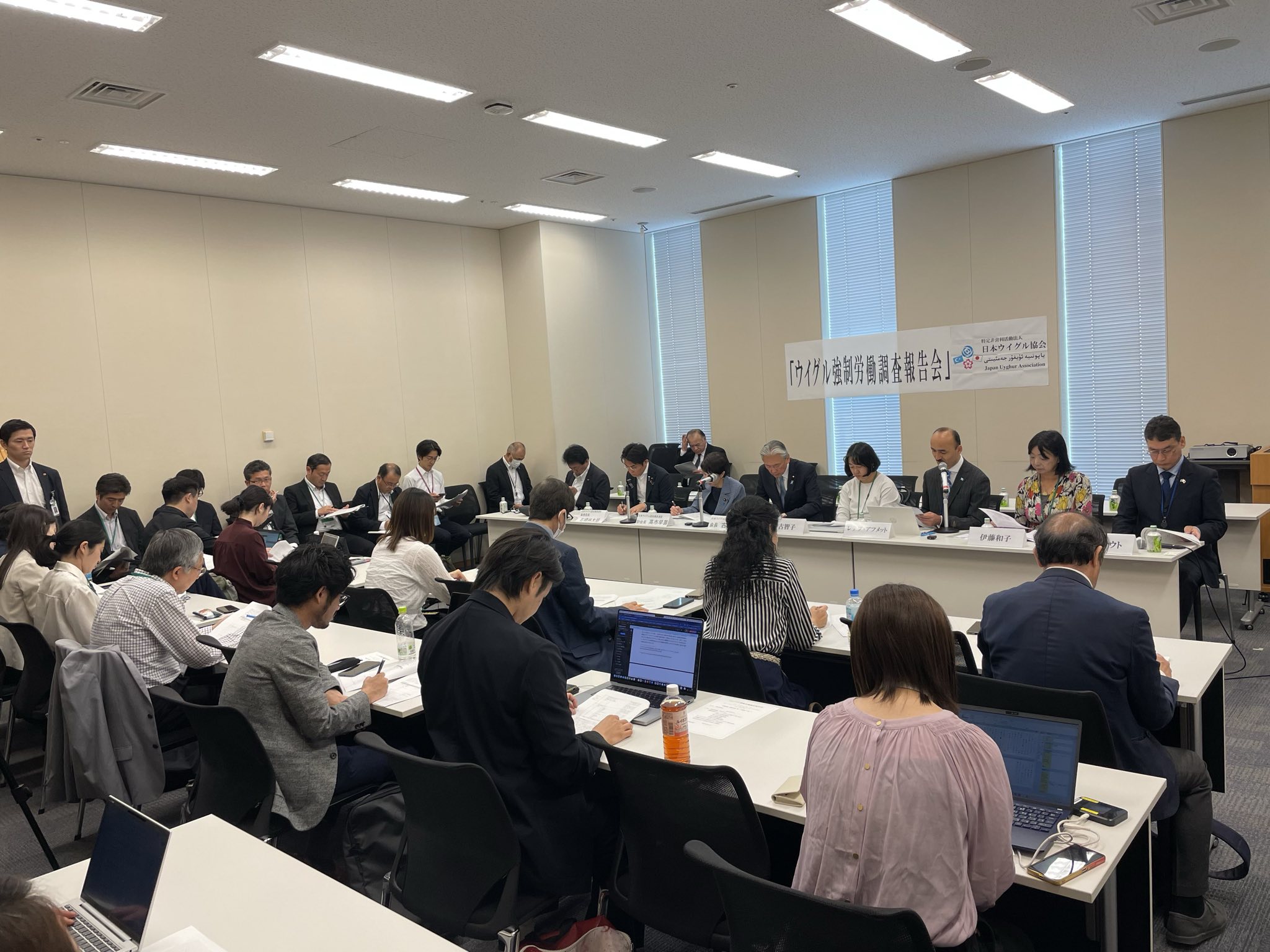Turkistan Times, May 26, 2025 - A press conference was held in the Japanese Parliament on May 16, 2025, where the issue of Uyghur forced labor under China's repressive policies was brought to light from the Uyghur perspective. The Japan Uyghur Association and international human rights organization Human Rights Now (HRN) jointly addressed the media, publicly naming Japanese companies linked to these abuses and calling for binding legislation to sever such ties.
Over 80% of Investigated Companies Implicated
Citing a 2020 report by the Australian Strategic Policy Institute (ASPI) and updated data supported by U.S.-based think tank C4ADS, the organizations investigated 35 Japanese companies and 6 China-based companies operating in Japan. The findings revealed that more than 80%—a total of 34 out of 41 companies—had direct or indirect connections with suppliers implicated in the forced labor of Uyghurs in East Turkistan. These companies, many in apparel, automotive, and electronics sectors, included both Japanese and Chinese firms.
While nearly half of the companies failed to respond to inquiries, some acknowledged previous ties to forced labor-linked suppliers, claiming those relationships had since ended.

“Forced Labor Is Modern-Day Slavery”
Speaking at the conference, HRN Vice President Itō Kazuko stated, “Forced labor is a modern form of slavery. Japanese companies must act responsibly and sever all ties with these human rights violations.”
Letip Ahmet, President of the Japan Uyghur Association, warned that Japan risks becoming a “safe haven” for Chinese firms escaping Western sanctions. “Japan’s human rights values must not be compromised,” he emphasized, calling on Japan to match the global momentum for ethical accountability.
Calls for Binding Legislation in Japan
Liberal Democratic Party lawmakers attending the event stressed the urgent need for stronger legal frameworks. Former Minister for Economic Security Takaichi Sanae declared, “This is a human rights issue. Japan must adopt binding laws like those in the U.S.” Meanwhile, Furuya Keiji, Chair of the Japan Uyghur Parliamentary League, promised to push the issue in parliament, stating, “As lawmakers in a democratic country, we must take a firm stand.”
U.S. and EU Already Taking Action
In April 2022, the U.S. enacted the Uyghur Forced Labor Prevention Act, banning imports linked to forced labor. The European Parliament followed in March 2024 by agreeing on a regulation to prohibit products made through forced labor from circulating within the EU.
Although the Japanese government introduced “human rights due diligence” guidelines for corporations in 2022, these remain non-binding and lack enforcement mechanisms—something Uyghur activists insist must urgently change.

